- BY patric
- POSTED IN Tips and Tricks
- WITH 0 COMMENTS
- PERMALINK
- STANDARD POST TYPE
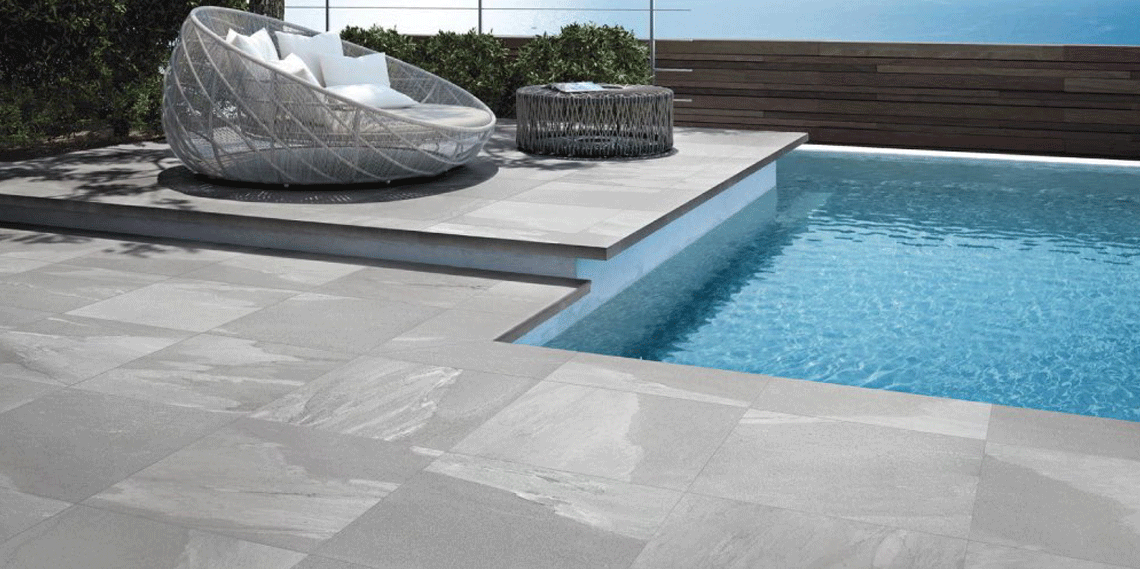
When you’re looking to add a pool deck to your home, there are many options available. Many of these materials have their own advantages and disadvantages when compared with one another. This is why there are important factors you should consider when selecting the perfect material for your needs. Here are the ten most important things to think about when choosing a pool deck material:
1. Available budget
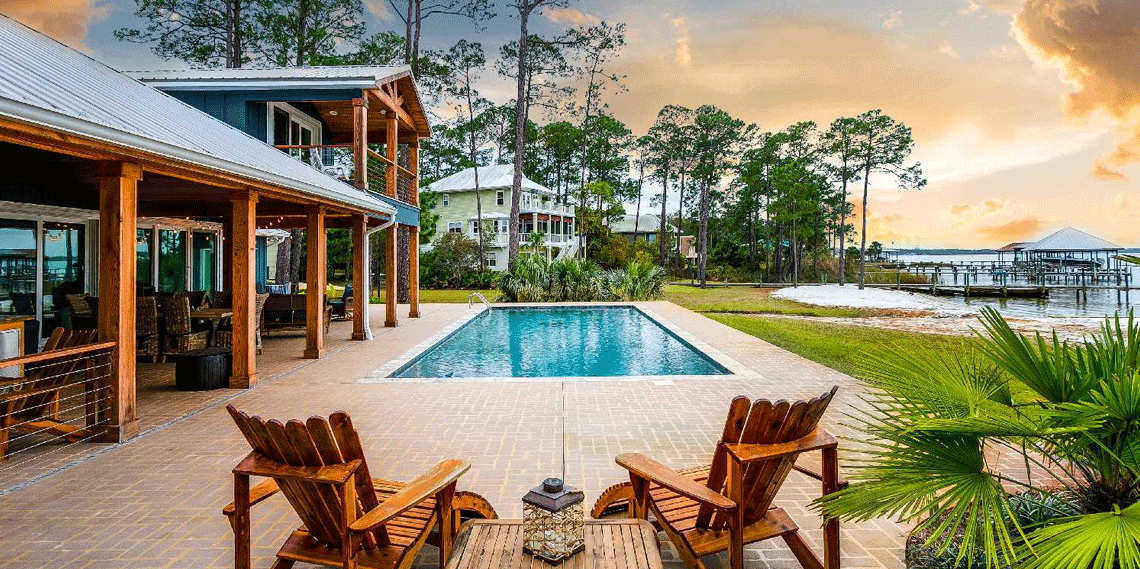
The cost of the material is an important consideration, as is the installation cost. You’ll want to make sure you have enough money set aside to cover both the material and installation costs.
2. Climate
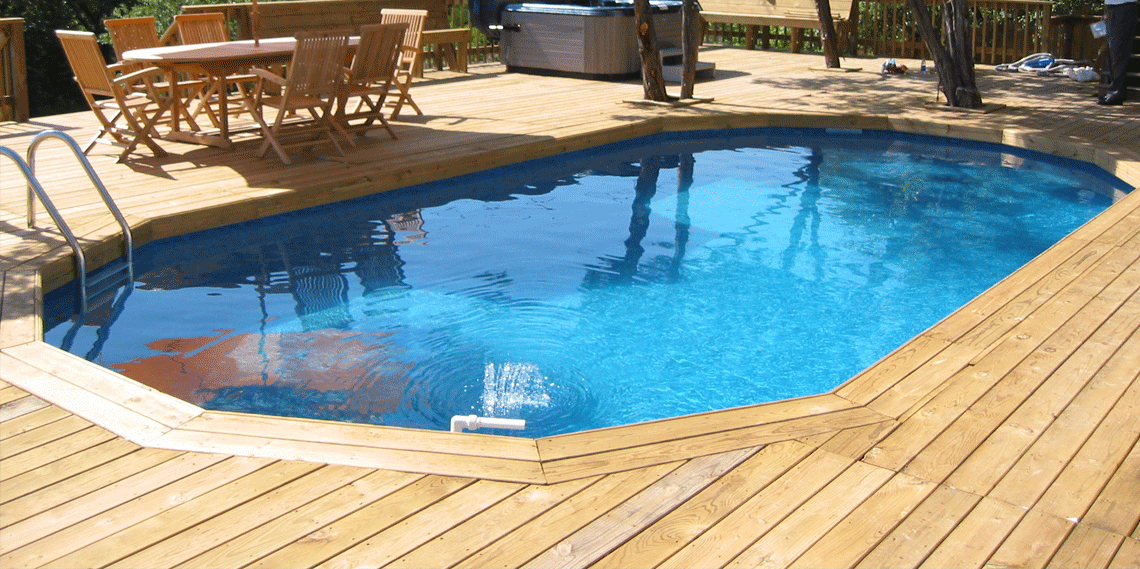
The climate where you live will also play a role in what type of material is best suited for your needs. For example, if you live in a hot climate, you’ll want to choose a material that can withstand heat and sun exposure.
3. Ease of installation
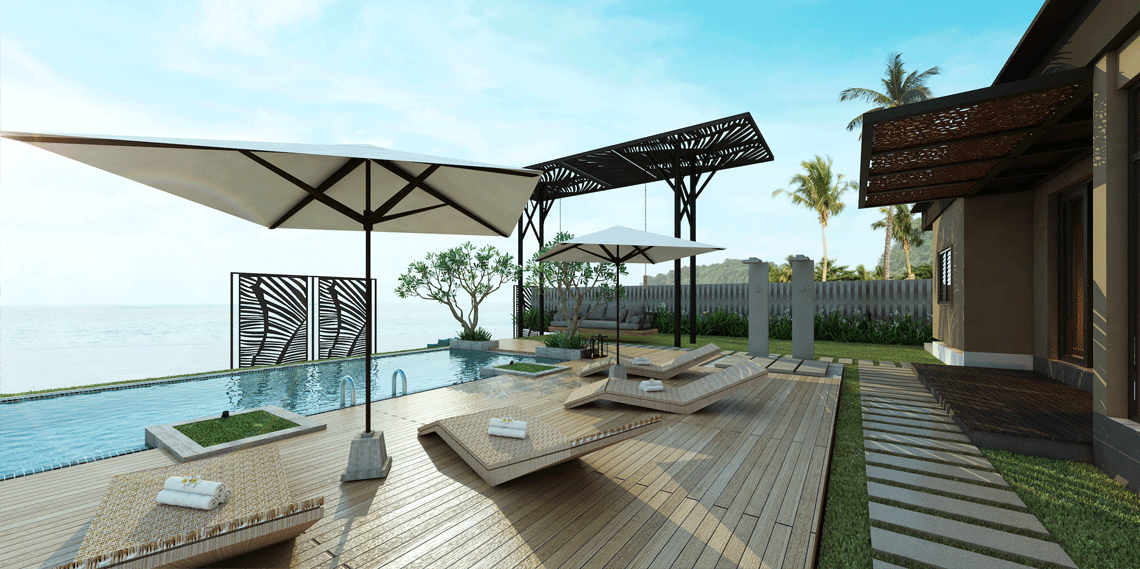
Some materials are easier to install than others. Be sure to choose one that you feel comfortable installing yourself, or reach out to a licensed professional for assistance. It’s best to avoid DIY projects when it comes to pool deck installation.
4. Maintenance requirements
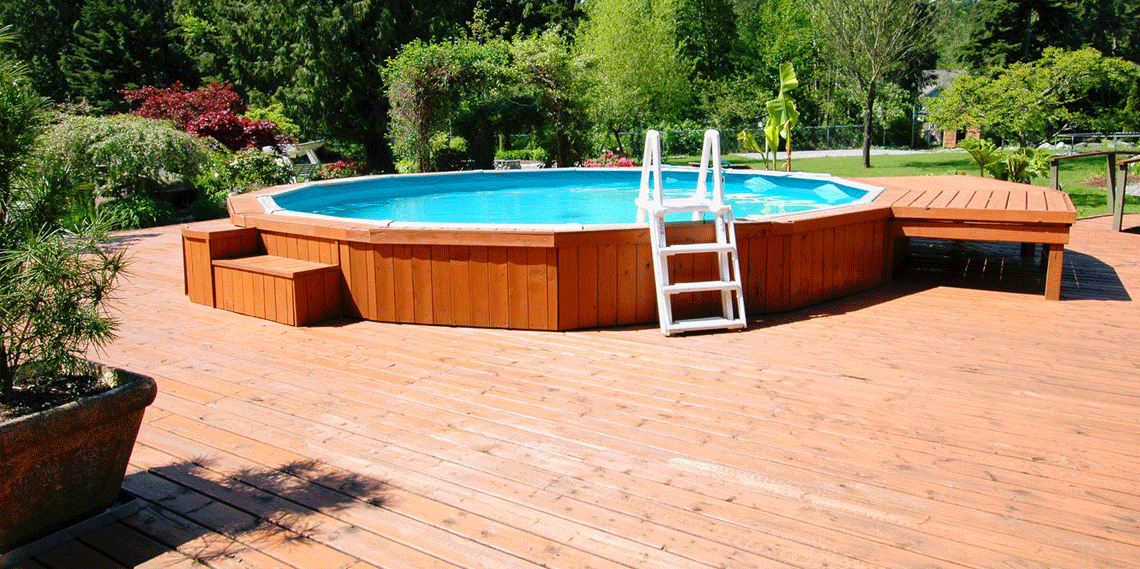
Pools and swimming pools add beauty and value to any home, but they also require maintenance in the form of regular cleaning and chemical treatments to be used safely and efficiently. The material you choose will affect how often you need these types of services performed on your new pool deck surface, so it’s important that you make this a priority in your decision-making process.
5. Temperature limitations
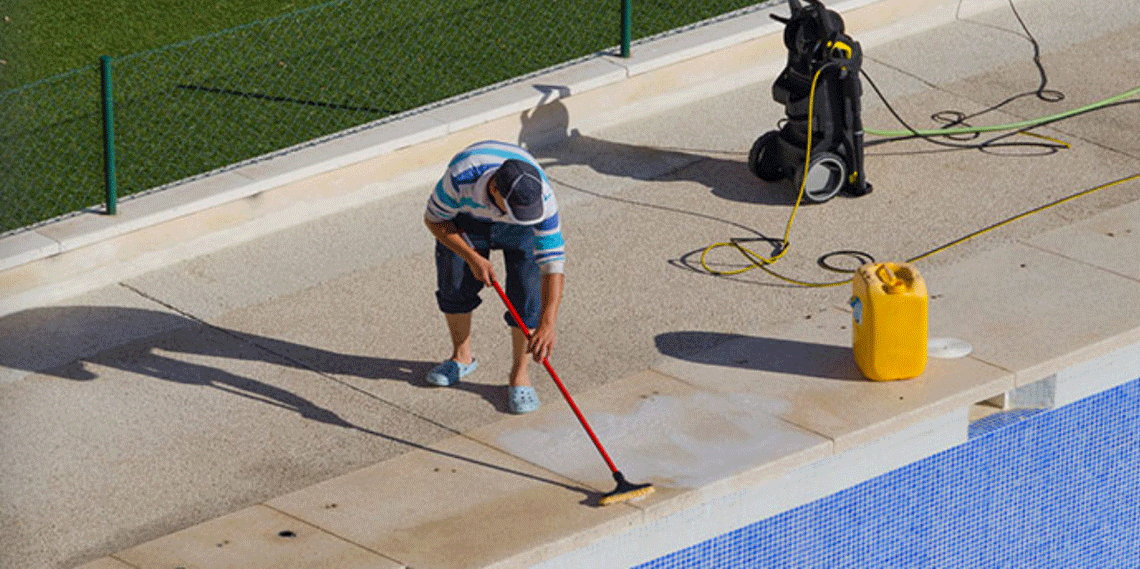
Heat is produced whenever there’s direct sunlight or water nearby, including pools and hot tubs. Some materials can withstand higher temperatures than others, so keep this factor in mind when comparing all available options before making a final choice.
6. Exposure to chemicals
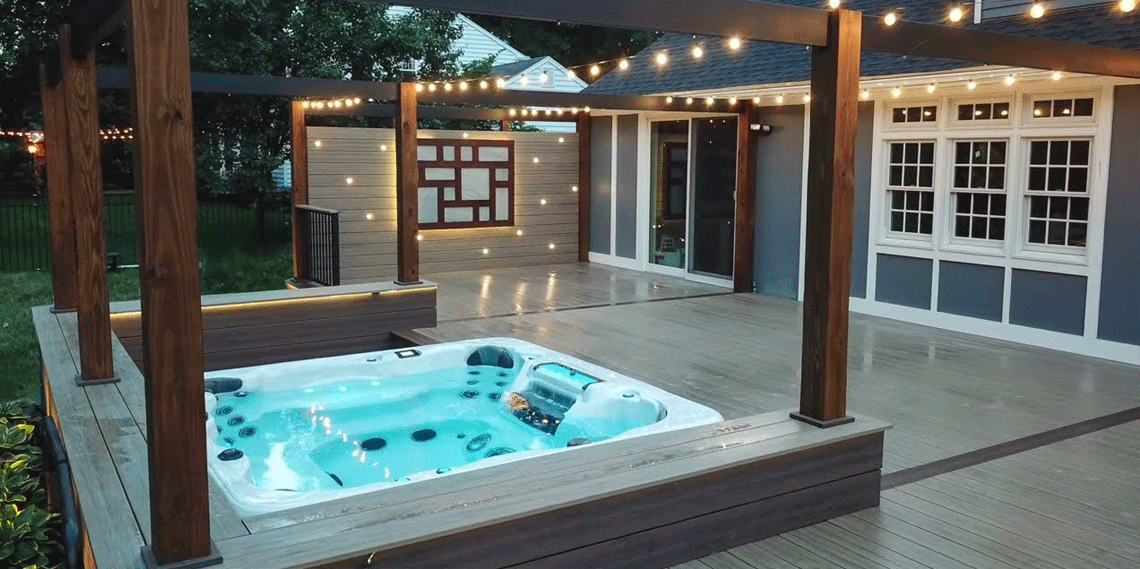
If your pool is treated with chlorine, you’ll want to choose a material that’s resistant to chemical damage. If it’s used for swimming laps, you may also want to consider certain materials that are less slippery than others so people won’t have as much of a risk of slipping and falling while near the pool or basking in the sun.
7. Surface texture
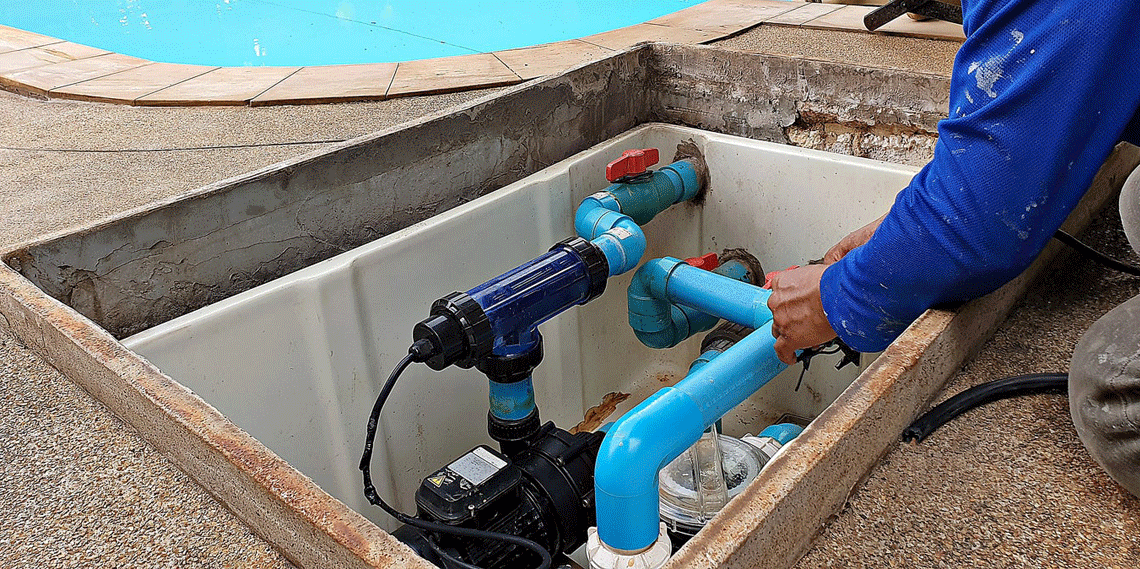
The surface texture should be another important consideration. Pool decks come in many different textures, from matte surfaces to glossy ones, which gives them their waterproof qualities and makes them easier to clean.
8. Outdoor vs. indoor use
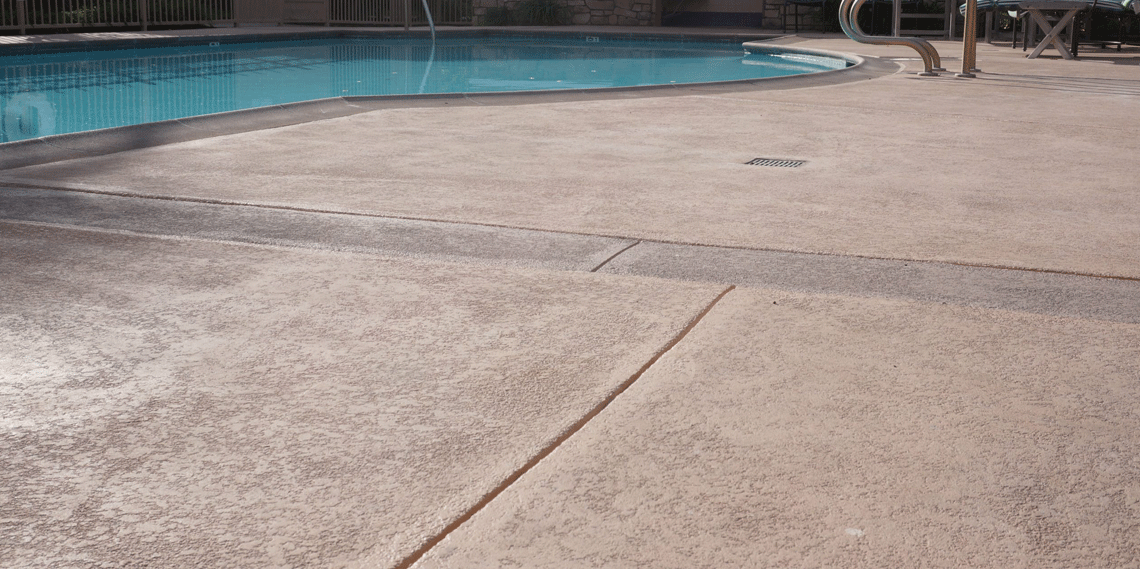
You’ll also want to think about whether or not you have plans for using your new decking outside or inside the house itself. For example, tile and stone are popular materials for indoor pool decks, as they’re durable and easy to clean.
9. Aesthetics
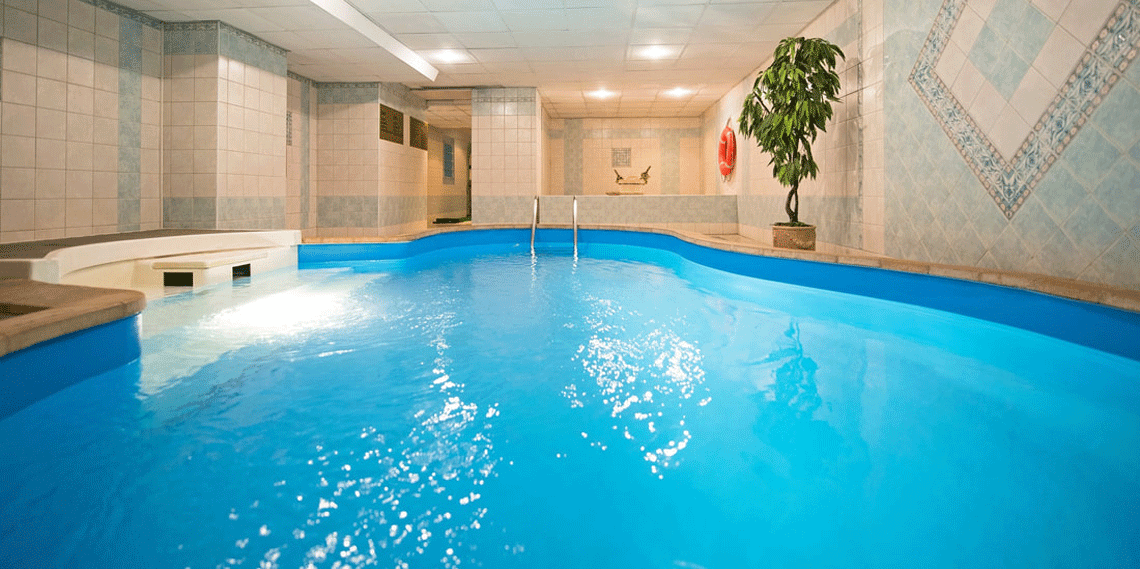
The way a material looks is always an important consideration, whether you’re going for a traditional or modern look with your pool deck. Be sure to compare all of your options and select the one that best suits your personal style.
10. Foot traffic
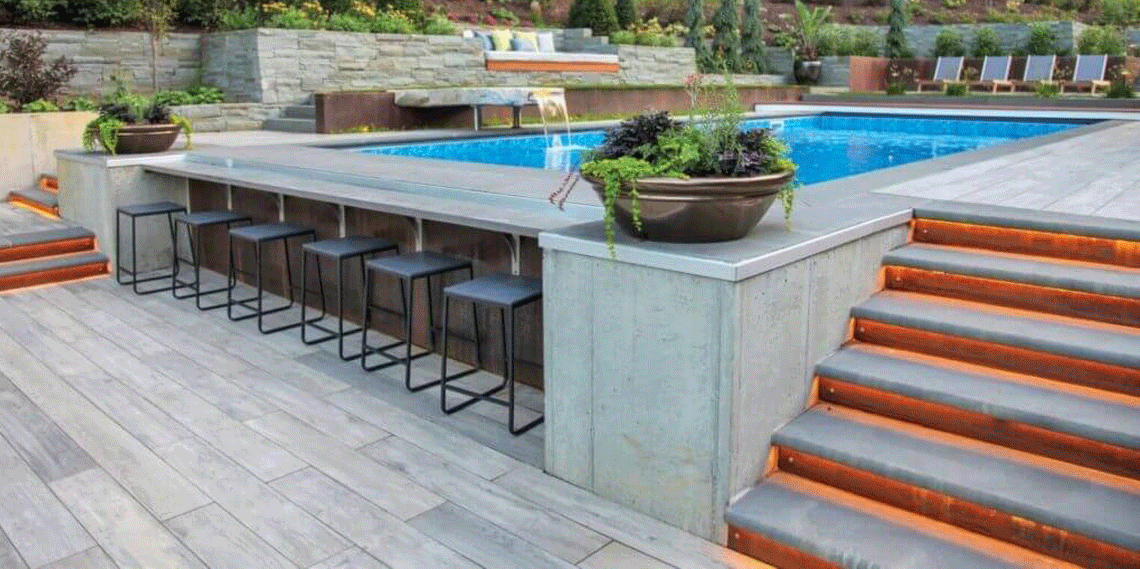
The amount of foot traffic your deck will see should also be a consideration. If you have a large family and friends who love to come over for barbecues and swimming, you’ll need a material that can withstand a lot of wear and tear. On the other hand, if it’s just going to be used by you and a few guests, a less sturdy material may be more than enough.
Most Common Pool Deck Materials:
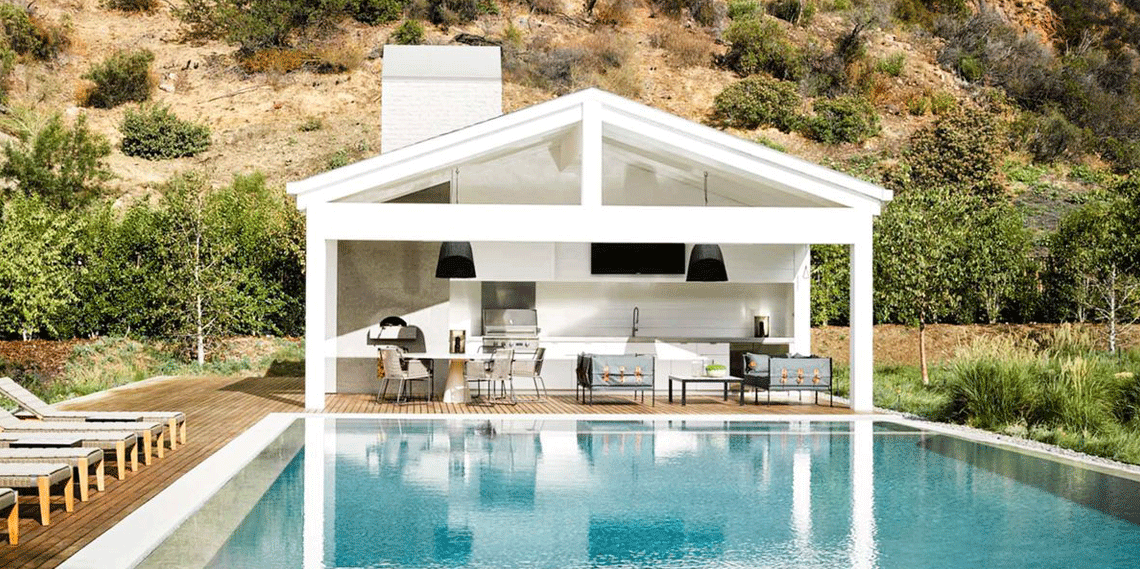
Now that you know what to consider when choosing a pool deck material let’s look at some of the most common options available.
1. Composite wood
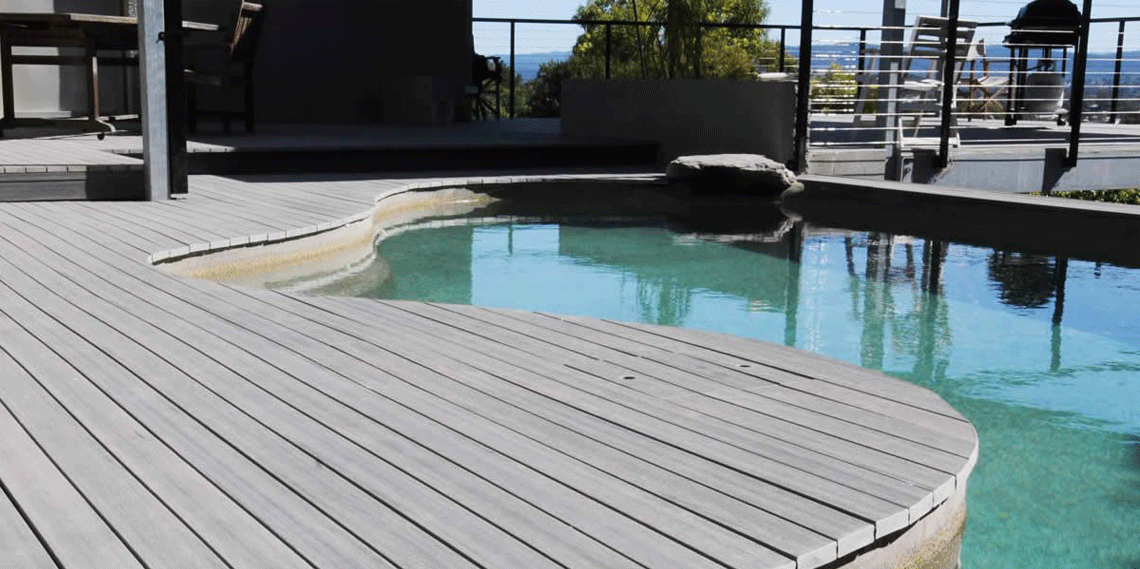
Composite wood is made from a combination of recycled materials, like plastic and wood fibers. It’s environmentally friendly, durable, and easy to install. However, it can be expensive and doesn’t always withstand high temperatures or chemicals very well.
2. Concrete
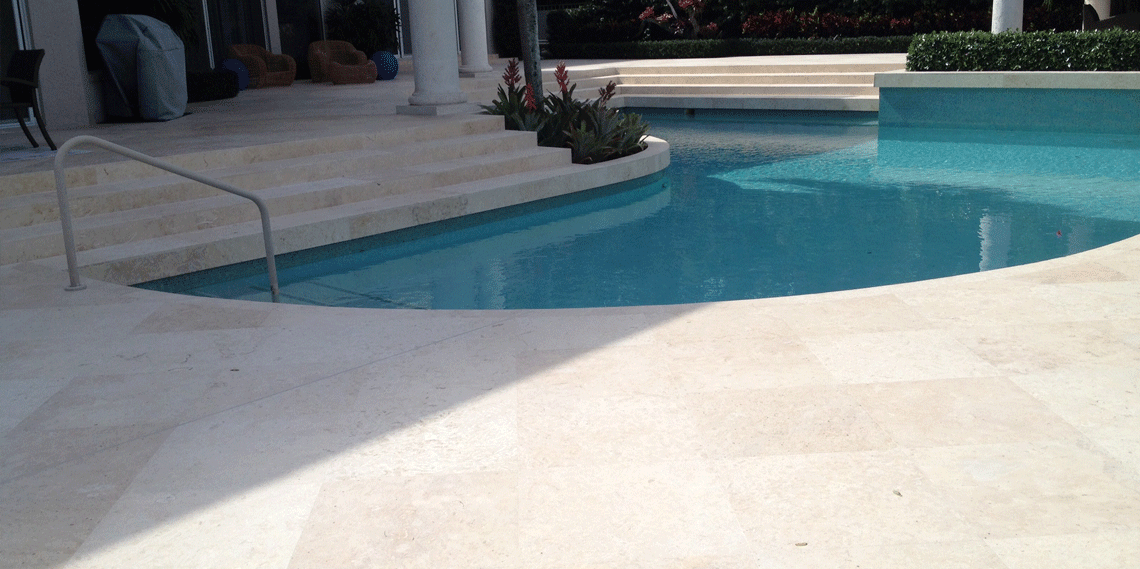
Concrete is a popular choice for pool decks because it’s affordable and durable. However, it can be quite heavy and difficult to install, and it doesn’t always look great in modern settings.
3. Pavers
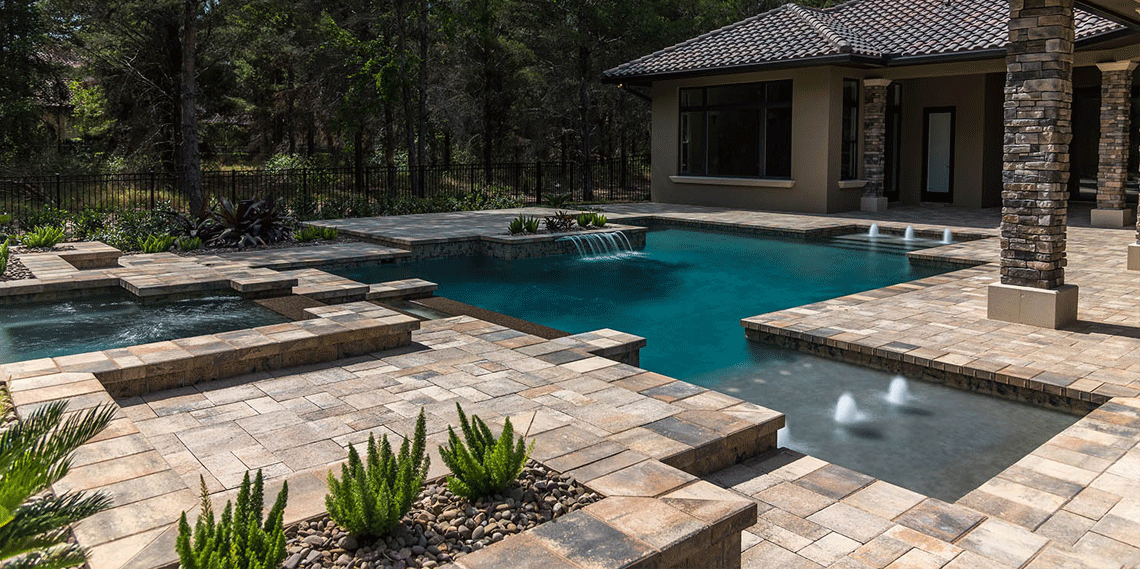
Pavers are another affordable option that can be installed easily. They come in many different colors and styles and can be used to create a variety of looks. However, they’re not always as durable as other materials and can be damaged by high temperatures and chemicals.
4. Stone
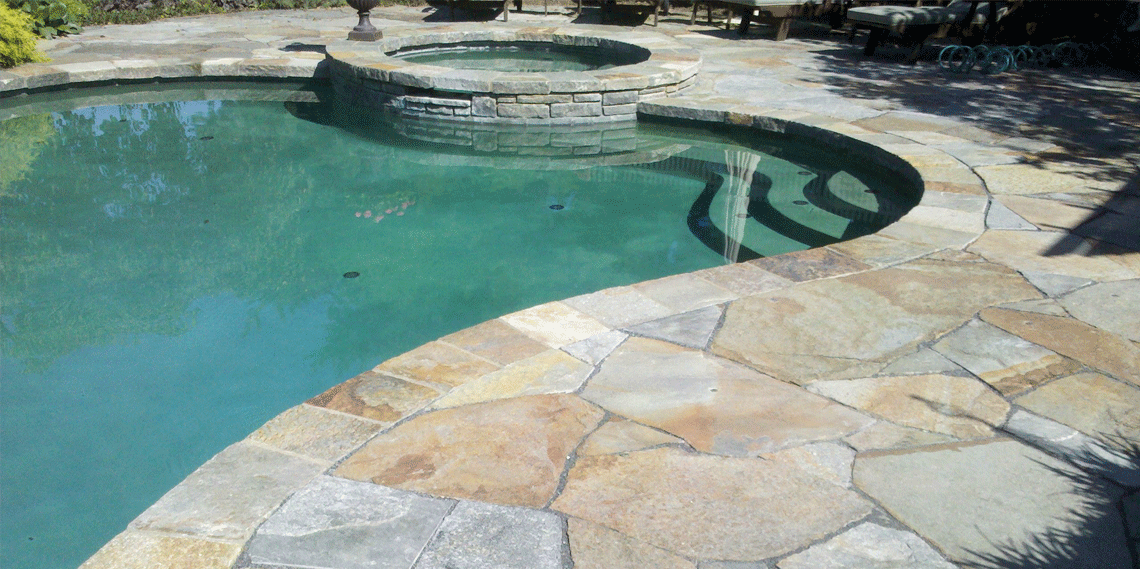
Stone is a beautiful option for pool decks, but it’s also one of the most expensive choices. It’s durable and long-lasting, however, and can withstand high temperatures and exposure to chemicals.
5. Vinyl
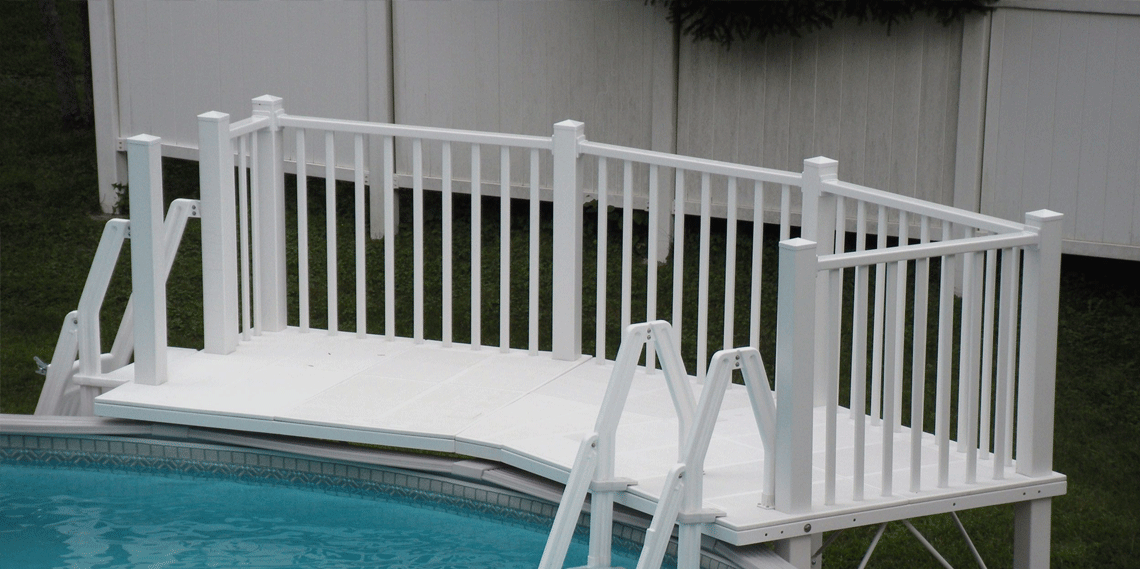
Vinyl is a popular choice because it’s affordable and easy to install. It also comes in a variety of colors and styles, making it a versatile option. However, it doesn’t always withstand high temperatures or UV radiation well.
6. Tile
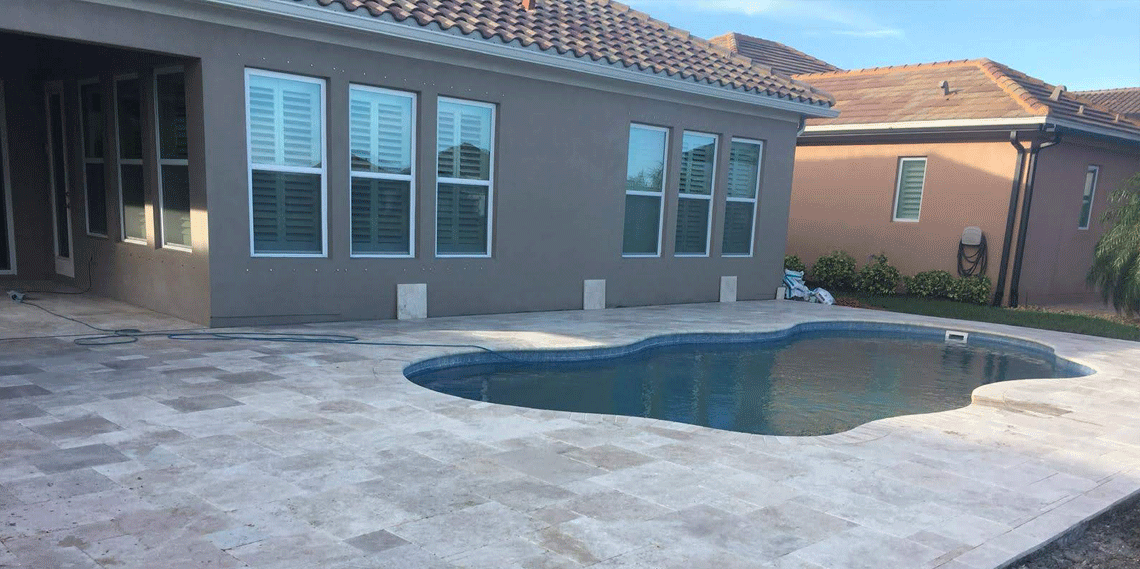
Tile is a great option for pool decks because it’s affordable, easy to install, and versatile. It comes in many different colors and styles, making it a popular choice for most decors. For this reason, it’s also one of the more expensive options available.
7. Wood
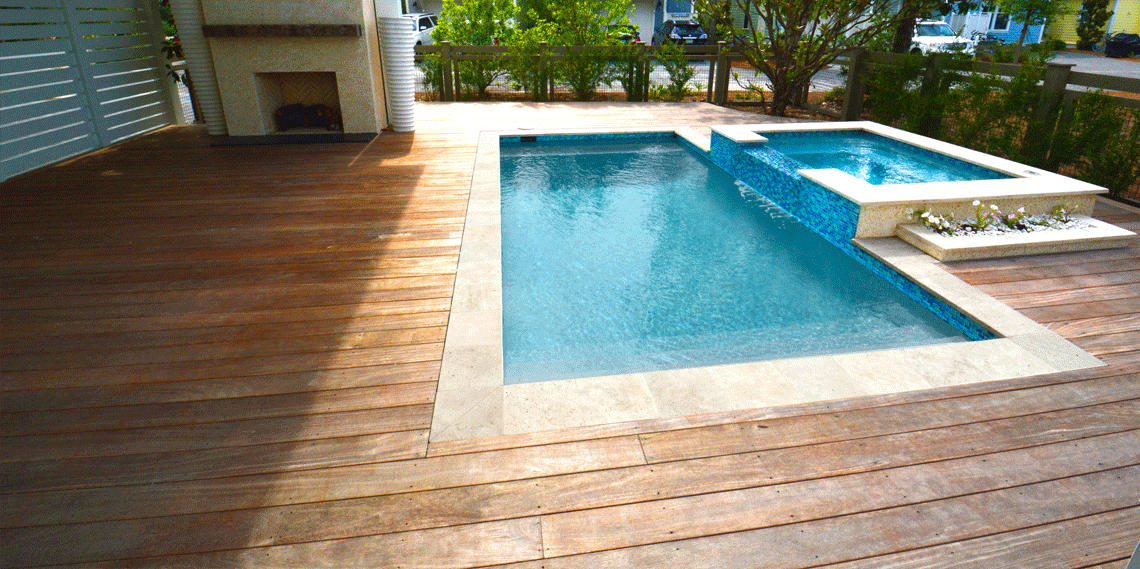
Wood is a traditional choice that has been around for decades. It’s durable and strong, but it can be damaged by exposure to chemicals or high temperatures. It’s also not as long-lasting as other materials available today, like concrete and vinyl.
8: Rubber
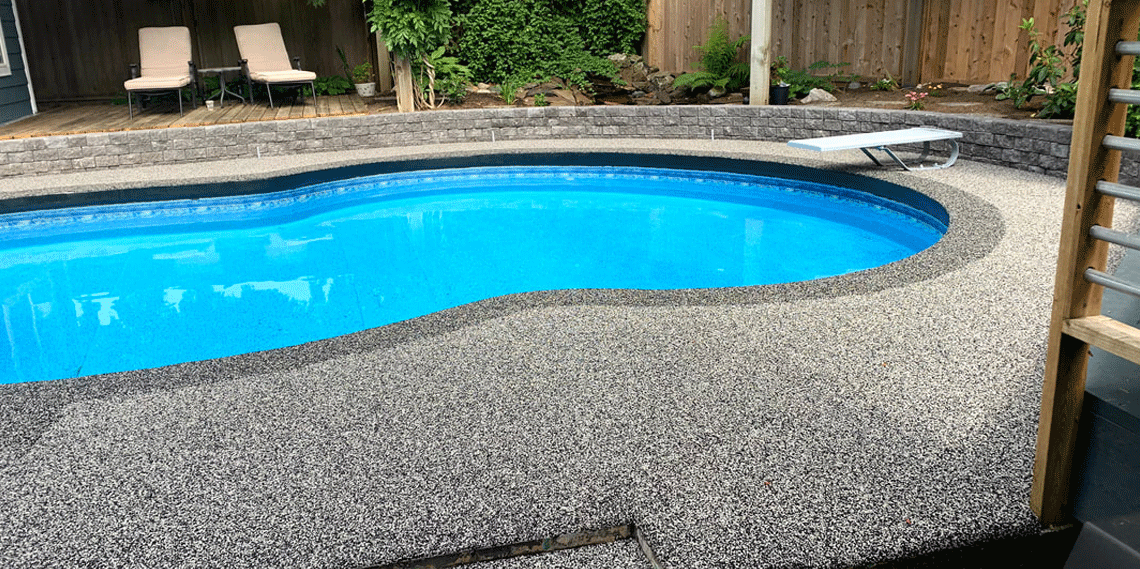
Rubber floors are becoming increasingly popular on pool decks because they’re durable and environmentally friendly due to their recycled material content (rubber tires). They don’t crack or fade when exposed to the elements, and they’re easy to clean. They can also be easily repaired if damaged by high temperatures or chemicals.
9: Stone tiles
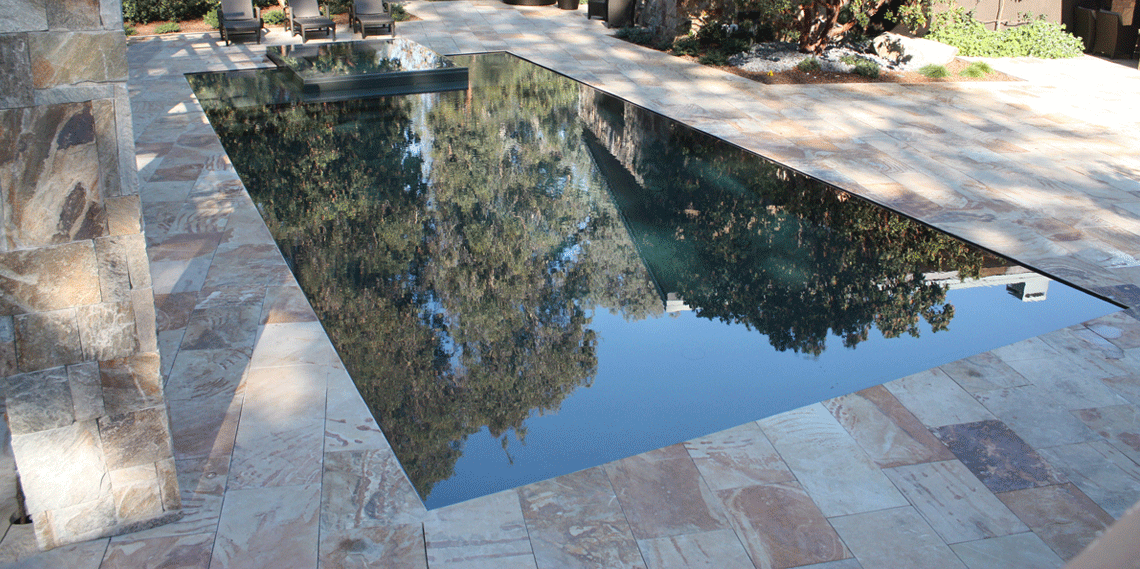
Stone tiles are an affordable option that has been around for decades. However, their durability is often poor compared to other materials available today. They come in many different colors and styles, but they may not always be the most appropriate choice for your pool deck, depending on your needs.
10: Travertine
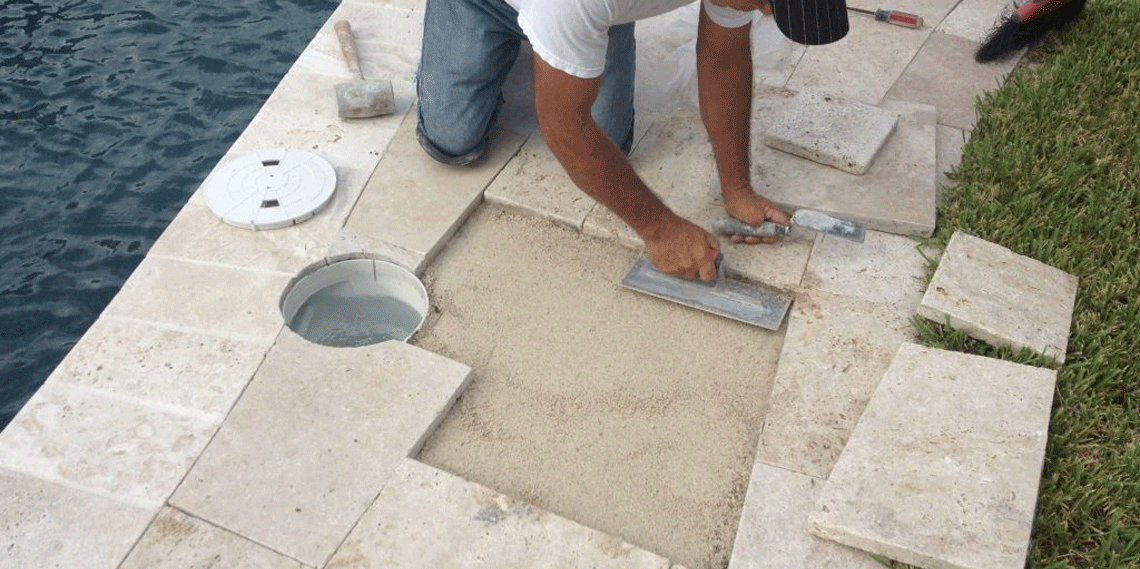
Travertine is a classic option that’s been around for decades. It’s slightly more expensive than other options available today, but it can last up to 50 years if installed correctly. Its durability makes it suitable for high-traffic areas and heavy foot traffic, but high temperatures or chemicals can damage it over time.
The choice of pool deck material comes down to your personal needs and preferences, so be sure to consider all of the above factors before making your final decision. Compare all of your favorite materials side by side to find the one that best meets your requirements.
Also, don’t forget about the importance of color, style, and design – these are just as important as durability when choosing between various materials. Once you’ve decided on your material, be sure to call us today so you can receive your free estimate.

